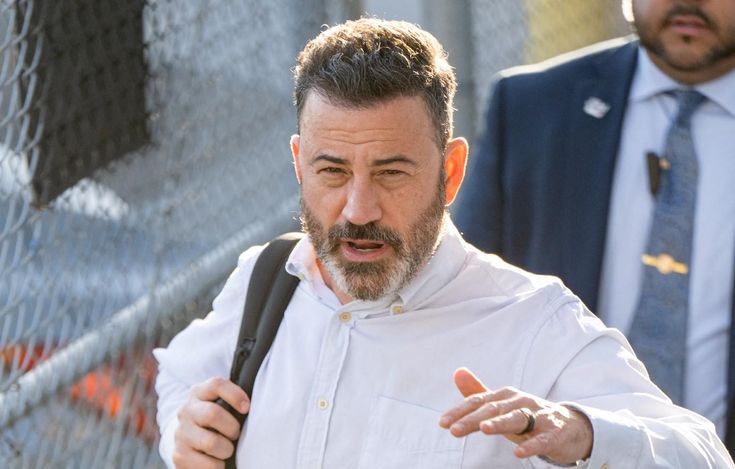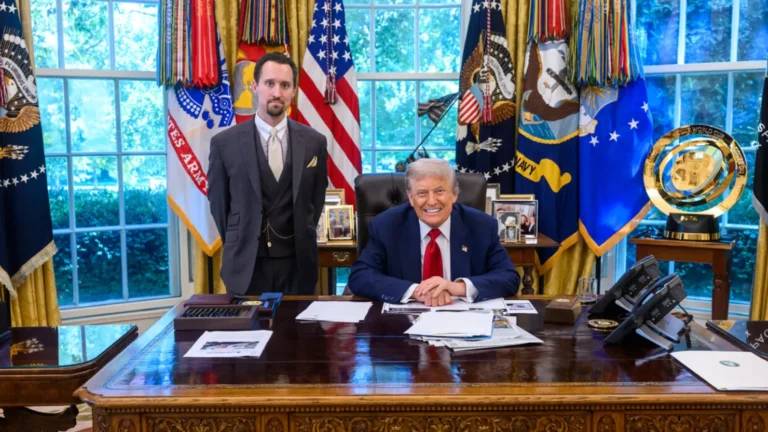
In a move that has drawn the attention of both viewers and industry insiders, Jimmy Kimmel is set to return to his late-night television program on Tuesday after a brief suspension. The pause was prompted by controversial comments Kimmel made about the recent death of conservative influencer Charlie Kirk, which sparked a wave of criticism and prompted immediate action from the network’s parent company, Disney.
The entertainment giant, which owns the network that airs “Jimmy Kimmel Live!”, stated that the suspension was a response to comments it deemed “ill-timed and insensitive,” especially given the sensitive nature of the topic and the current polarized climate. After internal discussions and a review of the situation, Disney ultimately decided to reinstate Kimmel and his show.
The decision underscores the ongoing balance broadcasters face between creative expression and corporate responsibility, especially in an era when reactions on social media can quickly escalate controversies.
Disney’s move to bring Kimmel back was accompanied by assurances that the show would remain a platform for frank, if sometimes provocative, comedy. The suspension and subsequent reinstatement have sparked widespread debate about freedom of expression, censorship, and the role of broadcasters in political discourse. Significantly, this controversy emerged amid a broader political and regulatory climate, where the federal TV regulator threatened to revoke ABC’s broadcast license. Critics argued that such threats posed a threat to freedom of expression and freedom of the press, sparking a discussion about the limits of government interference in media content.
Thank you for reading this post, don't forget to subscribe!Former President Donald Trump weighed in on the controversy and supported the idea that networks should face consequences for negative coverage of political figures.

Trump suggested that if some networks continued to broadcast “hostile and biased” reporting about them, they should have their licenses revoked. However, he did not comment specifically on Kimmel’s return, focusing instead on the broader issue of media accountability. Looking ahead, “Jimmy Kimmel Live!” Promising an engaging show for viewers, the show is planned to feature actor Glen Powell as its upcoming guest. Meanwhile, the show’s future remains uncertain in some regions.
Sinclair, ABC’s largest affiliate group, has announced that it will continue to air alternative programming on its stations, citing ongoing negotiations with ABC regarding the show’s future. Another major station operator, Nexstar Media, has also stated that it will not air Kimmel’s show in the near future, citing scheduling decisions and contractual considerations. Both critics and supporters are voicing their opinions, with many raising concerns about its impact on freedom of expression and the First Amendment.
As the show prepares to return, the industry is closely monitoring it, aware that the developments could signal how entertainment and news media will navigate the complex landscape of political sensitivity and censorship in the years to come.In a recent development that has sparked a storm of controversy in the media world, comedian Jimmy Kimmel found himself at the center of a heated debate over freedom of expression and political influence. Known for his sharp satire and outspoken comments, Kimmel took aim at President Donald Trump’s response to the tragic murder of a prominent figure named Kirk. In his monologue, Kimmel mocked Trump’s dismissive attitude and compared it to
“a four-year-old lamenting a goldfish,”suggesting that the president’s response was callous and oblivious to the gravity of the situation.

The comments immediately sparked outrage among Trump supporters and political allies, who accused Kimmel of overstepping his bounds and undermining the dignity of his position. The controversy escalated when Federal Communications Commission (FCC) Chairman Brendan Carr, appointed by President Trump, issued a stern warning. Carr threatened to take action against ABC and Disney, the networks that broadcast Kimmel’s show, alleging that the comedian’s comments were inappropriate and potentially harmful.
This move was sharply criticized by media watchdogs and free speech advocates, who argued that such threats set a dangerous precedent for government interference in entertainment and journalism. Amid rising tensions, Vice President J.D. Vance and White House aides reportedly launched a campaign aimed at punishing critics of Kirk’s death, portraying the incident as a matter of national concern. Their efforts appeared to align with Carr’s stance, further politicizing the issue.
In response, Nexstar Media Group announced that it would stop broadcasting Kimmel’s program “indefinitely,” effectively removing the show from its schedule. Sinclair Broadcast Group followed suit immediately, citing “editorial reasons.” ABC issued a formal statement suspending Kimmel’s show and demanding a public apology from him. Additionally, they requested donations to Kirk’s nonprofit organization, Turning Point USA, as part of the resolution. Carr publicly praised Nexstar’s decision and expressed hope that other broadcasters would do the same to “protect the integrity of our broadcasts.
” Meanwhile, FCC Democrat Anna Gomez supported Disney’s stance, praising the company’s “courage in standing up to government pressure” and commending Americans who resist censorship attempts. The suspension of Kimmel’s show sparked widespread protests and a wave of criticism from free speech advocates, media organizations, and the public. Many argue that the episode exemplifies the dangerous encroachment of political interests into independent journalism and entertainment, raising important questions about where the line should be drawn between accountability and censorship in a democratic society.
In a passionate display of humor and support, Stewart praised the success of the recent campaign and jokingly revealed that although he pretended to be off Hulu, he secretly streamed all four seasons of “Only Murders in the Building.” His lighthearted comment underscored the tenacity and ingenuity of those behind the effort. The event resonated across the talk show world, with hosts like Stephen Colbert—whose own show is set to end next year—and Seth Meyers publicly expressing their support.
They linked Kimmel’s return to a broader, more urgent response to what many see as a growing crackdown on freedom of expression, particularly in the media and entertainment sphere. Media analyst Dylan Byers discussed the situation on BBC Radio 4 and explained that Disney and other media giants are actively considering solutions amid mounting pressure.
The reactions from celebrities and former executives indicate growing concern about the impact of these attacks, especially when they threaten to undermine independent voices. Byers explained that Trump’s persistent attacks on media organizations and content creators have created a tense atmosphere, forcing companies to reconsider their strategies. He warned that unless these pressures are addressed, further restrictions on the media industry could be imposed, stifling diversity of opinion and critical journalism. Overall, this episode highlights the delicate balance between corporate interests, freedom of expression, and political influence in today’s media environment.







